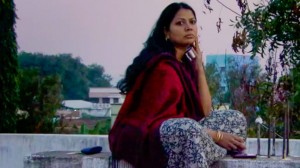A well accomplished eye opener into the troubles of oppressed women in fundamentalist Muslim communities.
Her name is actually a pseudonym. She has been the first woman in South India to write poems that candidly speak about her experiences as an enslaved Muslim, and thus has become the most prolific female poet of her generation. She is from the fundamentalist Muslim community Tamil Nadu, and was locked away by her family from the age of 13 after she had started her period. It is the tradition of the village that once girls hit puberty they should be locked indoors. It is a powerful force that dare be denied by its inhabitants, and one that drives many girls to suicide.
During one powerful part of the film, it is uttered that one young girl had set herself on fire. Salma says, ‘that’s how it is for Muslim girls’. As children they are betrothed to a man to marry, sometimes as young as eleven. Upon marriage, for most conservative households, they are confined to their in-laws home and serve their husband as a domestic and sexual slave. They are taken out of education and forbidden to read or write. At thirteen, Salma was locked in a room with a small barred window looking out onto a dirty street, and for nine years lived in a basement when she refused to marry her suitor. She eventually caved when her mother tricked her into marriage, persuading her doctor to pretend that she was dying of stress.
Longinotto is usually known for an observational approach, filming her subjects going through events in their lives, and intervening minimally. Despite this film focusing on Salma’s past rather than filming her in her daily world, it still has the sense of close and natural intimacy as the action is not staged or scripted. The only narration we get is the occasional line of text appearing on the screen providing us with facts. After five or six years of being independent from the village, Salma comes back and interacts with her family, a family who she of course has a complex relationship with but a great love for regardless.
Longinotto and her crew stayed for three months in Salma’s home, living with her family and capturing them reflecting on their memories. The men in her life have a remarkably sexist approach that is perpetuated by the community values themselves. Her father claimed ‘she is a good girl, but too clever’. When married and living with her husband Malik, Salma was aching to read and would resort to the scraps of newspaper that came wrapped around the groceries. She began to write poems, which were often discovered and thrown away. She would hide them in tampon boxes and have to sit in the confined bathroom to write as it was the only place she could get any privacy. Longinotto praises her remarkable bravery, as at one time her husband threatened to attack her with acid if she continued. ‘He would get angry at hit me’ she said.
She wrote anyway. Eventually, with the help of her mother, her poems were smuggled out and reached a stunned publisher. One of the most moving parts of the film is a journalist recalling when he sought after her to interview and take her photograph for his magazine. He requested to take a photo of her, “because obviously, she’s gorgeous!” to which she agreed even though it meant people would be able to identify her as the owner of the poems. For once in her life a man had noticed and admired her, for her talent as much as for her beauty. Since her poems have been published, people have said her and her writing should be burnt.
She now lives with her two teenage sons, and it was saddening to see they were disinterested in her success. They turned away, bored and seemingly ashamed of her new status when she recited her poetry to them. In a comical but incredibly patriarchal speech, her son talks about the benefits of the burqa, which Salma refuses to wear. His reasons are apparently scientific. “Men get ten times more aroused than women, it’s science”. According to him, women should wear it for both society and Allah. He also condemns his mother from going to the cinema. “I tell her because it’s good for her”, he said. But Salma feels, as she stated in the Q&A afterwards, that her independence is her right. This independence was gained by running for village council leader. Four years on the council upset the village but made her popular with local women.
The film has a poignant ending. Salma is filmed sat peacefully on a wall, listening to the sound of the mosque prayer. It is a beautiful and reflective shot, as she seems content with her identity as a Muslim woman who has faced danger and set herself free. She could objectively observe the cruelty and absurdity to her life, and despite the danger ahead, strive for a new reality where she is free to challenge herself and her mind. Salma has set a remarkable example for the thousands of Muslim women who are unaware that they deserve better, and even though change is slow, it has to start somewhere.
4/5


No comments:
Post a Comment